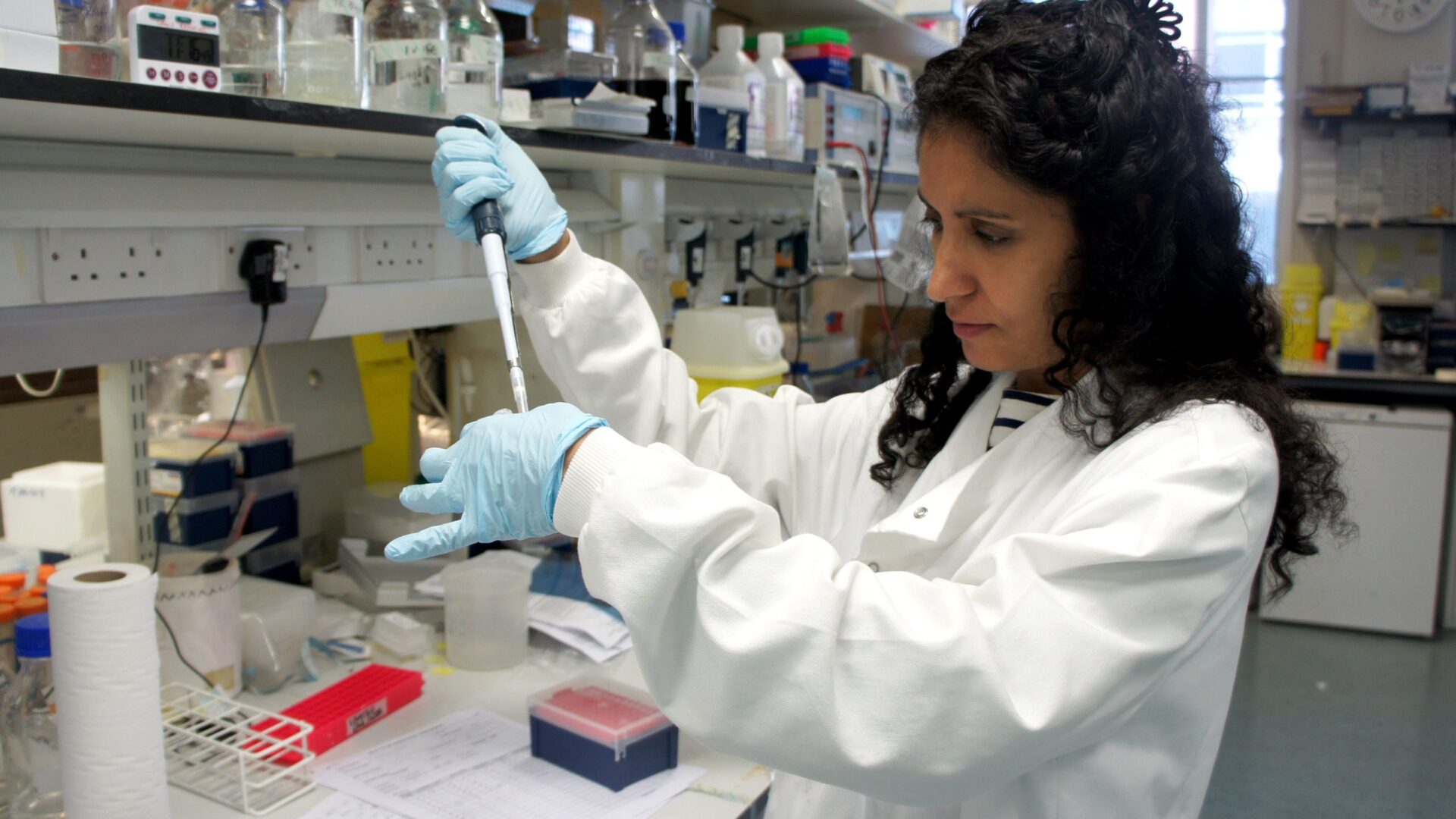
Helping to diagnose pancreatic cancer
Our funding has helped researchers to identify a protein that could help with diagnosing pancreatic cancer.
The protein, called pentraxin 3 (PTX3), is able to differentiate pancreatic cancer from other non-cancerous conditions of the pancreas.
Late diagnosis
Pancreatic cancer claims the lives of approximately 9,400 people each year in the UK, and the majority of cases are diagnosed when the cancer is at an advanced stage making it hard to treat.
In the study, researchers measured PTX3 levels in patients with pancreatic ductal adenocarcinoma (PDAC) – the most common type of pancreatic cancer – and found levels of the protein to be significantly higher.
Aiding early detection
Hemant Kocher, Professor of Liver and Pancreas surgery at Barts Cancer Institute and consultant at Barts Health NHS Trust, who led the study, said: “In the clinic, computerised tomography (CT) scanning is usually used in the diagnosis of pancreatic cancer. Although CT can detect the presence of a pancreatic mass, it cannot distinguish pancreatic cancer from other non-cancerous pancreatic diseases. This poses frequent diagnostic dilemmas in clinical practice, and there are currently no clinically applicable biomarkers for the early detection of PDAC.
“The findings from our study suggest that PTX3 could be used as a biomarker to improve PDAC diagnosis, and warrants further testing to determine whether it could aid early detection of PDAC in the clinic.”




